Top Class Actions’s website and social media posts use affiliate links. If you make a purchase using such links, we may receive a commission, but it will not result in any additional charges to you. Please review our Affiliate Link Disclosure for more information.
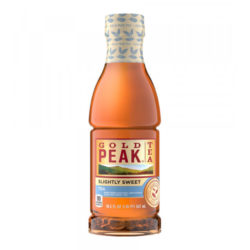
Plaintiff Monique Salerno says the label statements at issue in this class action lawsuit include, “Slightly Sweet,” “Sweetened with 50% less sugar than our original sweet tea” and “90 Calories Per Bottle.”
The plaintiff asserts that the tea is represented as being low in sugar whereas it actually contain high amounts of added sugar.
In addition, Salerno contends that products low in sugar are marketed to consumers who seek drinks that are useful in controlling weight by consuming less calories.
The Gold Peak Tea class action states that the Food & Drug Administration (FDA) has approved claims for the absence of sugar and calories (“no sugar” and “calorie free”) and some amounts of calories and sugar (“fewer calories” and “less sugar,”) but has not authorized claims for “low sugar.”
Thus, claims for “low sugar” are prohibited. The FDA has issued warning letters to companies that made “low sugar” claims, according to the Gold Peak Tea class action lawsuit.
“When consumers observe the Products’ front-label representations which highlight the ‘Slightly Sweetened’ claim, they will reasonably believe the Products are lower in sugar and added sugar than they are,” the Gold Peak class action lawsuit states.
Salerno claims the nutrition facts on the product reveals that the product contains 24 grams of sugar, which is entirely added sugar. Sugar is the second most predominant ingredient in the product.
The plaintiff says that a company representing a product as “slightly sweetened” when it contains half of the recommended daily added sugar intake constitutes a specific risk to consumers who wish to lower their sugar intake.
“It will be difficult to impossible for the average, reasonable consumer to not consume more than 26 grams of sugar in everything else they eat or drink because many foods and beverages have added sugars, albeit in much smaller amounts than the Products,” the plaintiff claims.
Although the product is labeled as having “less sugar” than other tea products on the market, that does not mean that they are “low sugar” as understood based on the “slightly sweetened” claim, the plaintiff asserts.
In addition, the plaintiff says the divulgence of calories on the front of the bottle does not inform consumers how much of those calories come from added sugars.
“Because the Products are promoted as ‘slightly sweetened’ (‘low sugar’) and not ‘no sugar’ or ‘sugar free,’ it falls outside of claims considered by the relevant authorities,” the Gold Peak Tea class action lawsuit states.
The plaintiff claims that if she had known the truth about the amount of sugar in the tea, she would not have purchased the product or would have paid less for it.
“Defendant’s false, deceptive, and misleading branding and packaging of the Product has enabled defendant to sell more of the Product and at higher prices per unit, than it would have in the absence of this misconduct, resulting in additional profits at the expense of consumers,” the Gold Peak Tea class action lawsuit asserts.
Have you purchased Gold Peak Tea thinking it was low in sugar? Leave a message in the comments section below.
The plaintiff is represented by Spencer Sheehan of Sheehan & Associates PC and Michael R. Reese of Reese LLP.
The Gold Peak Tea Sugar Content Class Action Lawsuit is Monique Salerno v. The Coca-Cola Company, Case No. 1:20-cv-00711, in the U.S. District Court for the Eastern District of New York.
ATTORNEY ADVERTISING
Top Class Actions is a Proud Member of the American Bar Association
LEGAL INFORMATION IS NOT LEGAL ADVICE
Top Class Actions Legal Statement
©2008 – 2024 Top Class Actions® LLC
Various Trademarks held by their respective owners
This website is not intended for viewing or usage by European Union citizens.



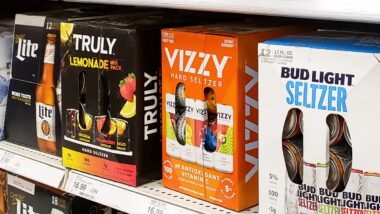
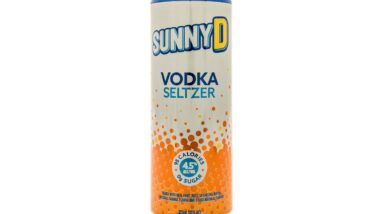


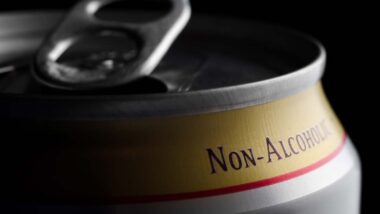






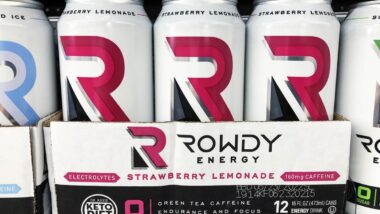
1,642 thoughts onGold Peak Tea Class Action Says ‘Slightly Sweet’ Claim Is Misleading
I thought the same thing. So much for lower sugar.
Please add me. I buy multiple bottles whenever I can find it. It certainly tastes like it has less sugar than most other flavors.
Please add me
Please add me. Buy it all the time
Add me I’ve been drinking Gold peak tea thinking it is low in sugar due to my health
I bought thinking this was healthier for me…and again just
I’ve been drinking Gold Peak for over a year. I’m a diabetic so I thought it was better for me. Now I know why my blood sugar kept going crazy. Please add me
Add me please
Add me please
Add me please. Buy because I don’t like overly sweet drinks or food. Prefer tea over pop. Definately add me. Been buying a long time.